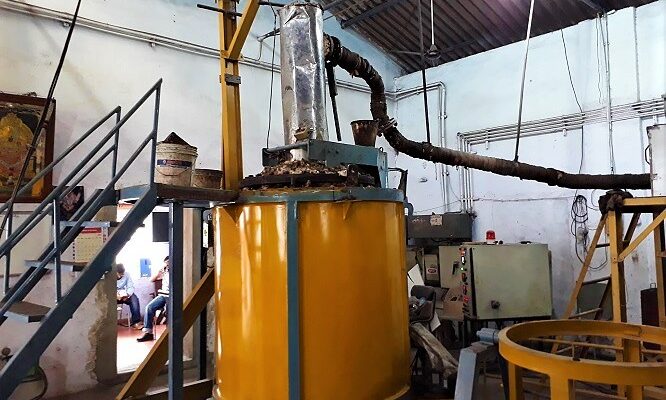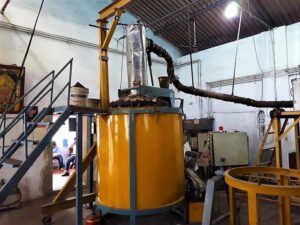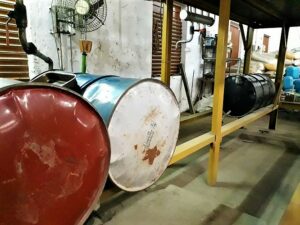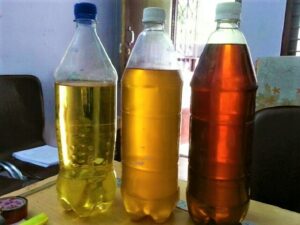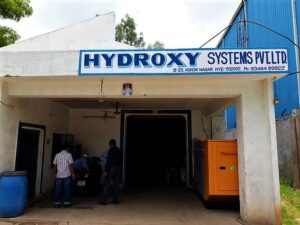PLASTIC TO FUEL
Plastic had been playing a very important role in our life. We use plastic to make mobile phones, airbags, helmets, television, computers, plastic bags, etc. Some plastic are hard shatter resistant while some are soft and flexible. Soft plastics are used to make adhesives, paints, coatings, glues, etc. while hard plastics are used to make electronic components, phones, television, etc. Plastic also occur in nature like tree rubber.
Everyday lots of plastic are generated all over the world. Every day we use plastic in the form of bags carrying foods, clothes or other valuable things. After our plastic usage some store to use it on someday for other purposes while some just throw away. This lead to the accumulation of the plastic everywhere resulting in plastic pollution. Plastic pollution is one kind of pollution which adversely affects wildlife, human habitat. Each year 380 million tonnes of plastic is produced worldwide. Plastic contribute about 10% of the total waste generated worldwide. To reduce the plastic pollution, most of the countries are doing recycling of plastic and use it again. But have you heard of plastic being converted to fuels?
A person name as Satish from Hyderabad has developed a special machine which converts a dead plastic to fuel. Plastic has a life of 4 to 5 cycles. That’s why plastic is recycled. After recycling plastic few times, plastic gains weight and loses it properties then that plastic is called as “dead plastic” or “end of life” plastic. Plastic is basically a polymer. Hence it can be depolymerised. This dead plastic is used to convert plastic into fuel using technique of pyrolysis and depolymerisation. Depolymerisation is a process in which polymer is converted into several monomer.
Steps of reverse engineering process to convert plastic into fuels:
1. Pyrolysis and Depolymerisation
2. Gasification and Condensation
Pyrolysis and Depolymerisation
Satish explains that, first of all dead plastic is put into the vacuum chamber with all the other ingredients at about 350 to 400 degree Celsius. This heat is given by the means of induction, microwave or infrared heating. Pyrolysis is a thermochemical decomposition in the absence of oxygen. Depolymerisation is breaking down the polymer into its smallest monomer compound.
Gasification and Condensation:
After it is heated, gasification takes place and the system named as inline distillation system separates petrol, diesel and high speed diesel. Every reaction gives by-product. This reaction also gives by-product as petro gas and petroleum coke. Satish claims, that the process of depolymerisation is safe, controllable and also non-polluting. He says that this process is approved by PCB (Pollution Control Board). The machine gives out no waste as even the by-products can be taken into use.
Satish has constructed its own depolymerisation machine as it is very few in India. Initially he started working on the small machine that he made to process the waste plastic in smaller quantities. He studied and tested chemical reactions and worked on each individual part of process.
Later on in August 2005, he shifted to bigger premises and began to design big machines with large reactor and by the start of the January 2016 he started processing plastic on large quantities. Every month he is able to process around 13 to 15 tonnes of plastic. Each batch of plastic is processed within 12 to 18 hours and then machines is turned off for 8 hours to cool down. Each batch of plastic processing gives 250 to 300 liters of diesel, 100 liters of high speed diesel & 50 liters of petrol. Satish also pays some few mediators to provide him with large amount of plastic. Satish process 24 batches of plastic every month and rest 6 days are allotted to the maintenance of the machine.
Satish’s company is now named as “HYDROXY SYSTEM PRIVATE LIMITED” registered with small, micro and medium enterprises (MSME).
Do you think this can be a good method to convert plastic into some better usable method?
Pic Courtesy: https://www.thenewsminute.com/article/meet-hyderabad-man-converting-dead-plastic-petrol-and-diesel-65164
Editor: Anuj Gupta
